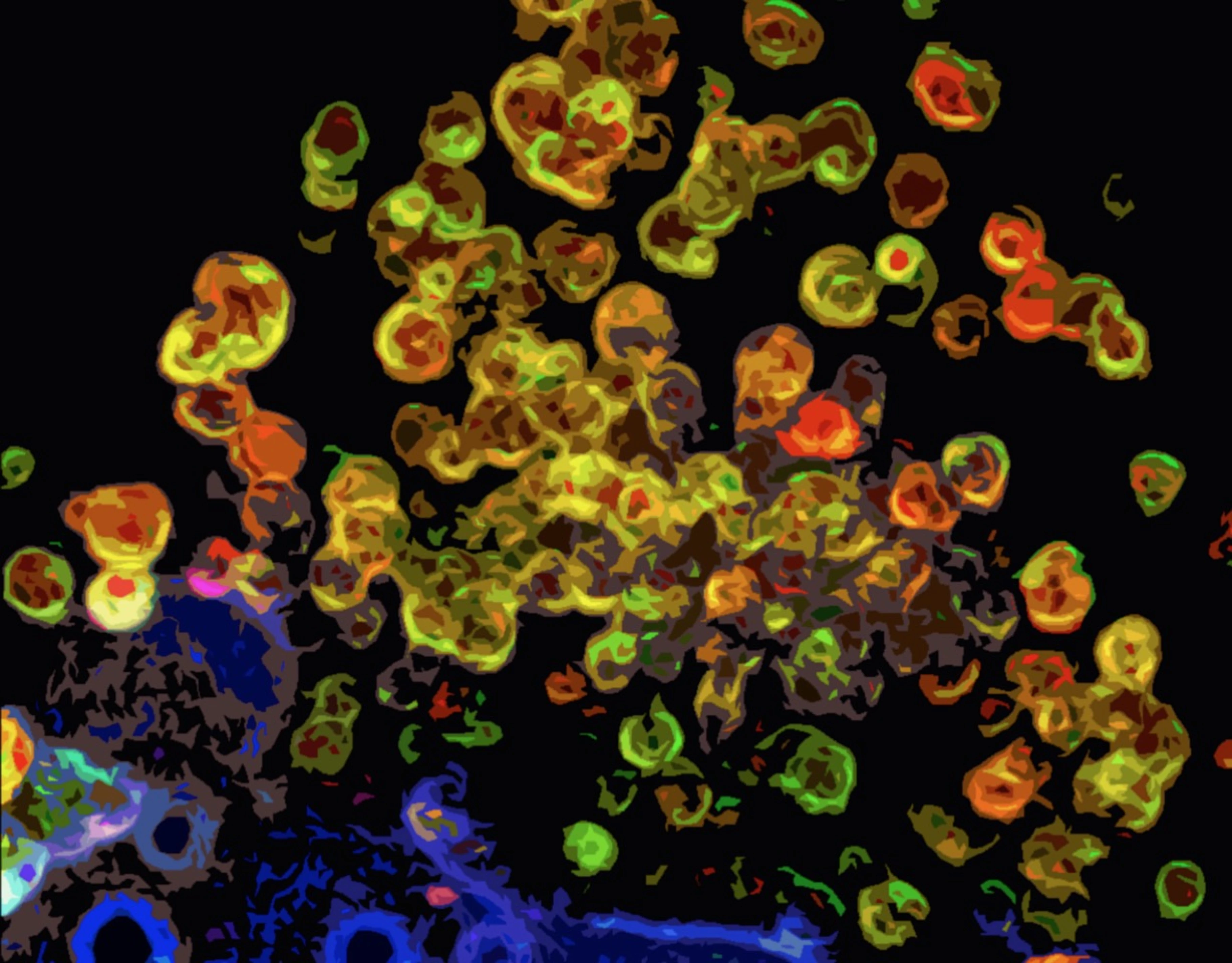
#Talk
How does a cell tidy up?
In every cell in our body, thousands of biochemical processes take place simultaneously. Cellular waste disposal continuously removes damaged or superfluous structures, ensuring that cells stay healthy and functioning. Observe these processes under the microscope and find out why this is relevant for the fight against cancer and other diseases!
Unser Projekt
Scientists of the Collaborative Research Centre (CRC) 1177 “Molecular and Functional Characterization of Selective Autophagy“ are researching an important mechanism for quality control in cells. They want to understand, for example, what role it plays in the origin of diseases. This is the first coordinated, interdisciplinary research network on selective autophagy in Germany. It is being funded by the German Research Foundation (DFG; with up to € 13.5 million in the funding period 2024-27).
The PROXIDRUGS consortium is funded by the Federal Ministry of Education and Research (BMBF) as part of the Clusters4Future initiative with up to € 5 million a year. The consortium focuses on the development of an innovative, economically and medically highly promising drug class that i.a. promises the targeted degradation of disease-relevant proteins. This new class of substances creates new treatment options for a large variety of diseases – especially those for whom there is currently still a therapeutic gap.
ENABLE Cluster researchers want to decipher the mechanisms and signals that influence cellular homeostasis, infections and inflammation. ENABLE is funded with € 12 million by the Hessian Ministry of Higher Education, Research, Science and the Arts (HMWK) and by Goethe University Frankfurt.
Unser Team
Goethe University Frankfurt is the speaker university for the three research networks CRC 1177, PROXIDRUGS and ENABLE. Network partners include researchers from the universities of Freiburg, Tübingen, Mainz, Munich, Heidelberg and Darmstadt, from non-university research institutes (Max Delbrück Center Berlin, Max Planck Institute of Biophysics, FIAS and the Fraunhofer ITMP), as well as from industry (AbbVie, Merck, GSK, Revvity). Individual research teams are interdisciplinary, with experts from biochemistry, biophysics, medical chemistry, cell- and molecular biology, pharmacology, toxicology and computational biology.
The cluster management for all three research networks is located at the Institute of Biochemistry II (IBCII) at Goethe University Frankfurt. If you are interested in finding out more about our activities, please don’t hesitate to get in touch! scima_ibc2@uni-frankfurt.de
